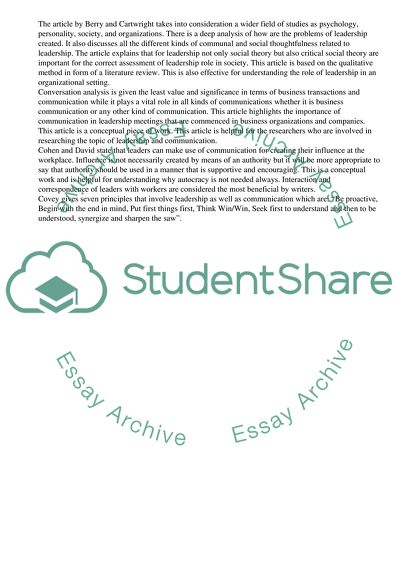Philosophy of Leadership Annotated Bibliography Example | Topics and Well Written Essays - 2000 words. https://studentshare.org/management/1720329-annotated-bibliography-my-philosophy-of-leadership-om8920
Philosophy of Leadership Annotated Bibliography Example | Topics and Well Written Essays - 2000 Words. https://studentshare.org/management/1720329-annotated-bibliography-my-philosophy-of-leadership-om8920.


